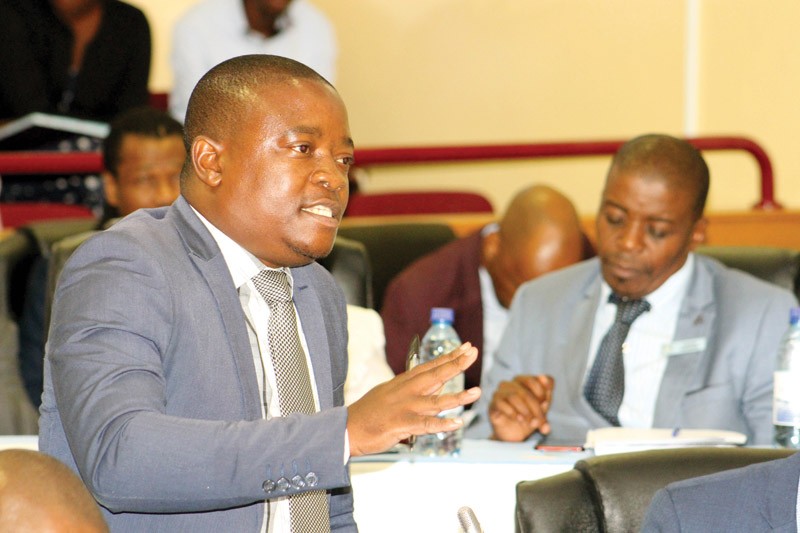Cllrs urge gov't to resuscitate NGOs
Chakalisa Dube | Friday March 1, 2019 12:32


This was said by councillors in Francistown who added that they are seeing serious regress in the fight against the epidemic in the country.
The councillors made the remarks during a full council meeting following a presentation on the upcoming ‘Botswana HIV/AIDS Impact and TB Prevalence Survey’ by officials from the National AIDS Coordinating Agency (NACA).
Nominated councillor James Kgalajwe said that in the past the government policies meant to fight HIV/AIDS were able to bear fruit because NGOs were used to reach out to a large portion of high-risk people, such as sex workers, those who frequent bars as well as night clubs and gay communities among others.
“Fighting the HIV/AIDS epidemic is a protracted war that the government cannot win alone. NGOs are a force not to be ignored in the fight against HIV/AIDS, especially that we are now targeting prevention and viral suppression. They can initiate some HIV/AIDS response activities that government organisations are unable to. They have proven in the past that they can fill in gaps left by various government health and social service departments,” the former Francistown mayor said.
He added, “Collaboration with NGOs can ensure maximum community participation and utilisation of HIV/AIDS response strategies. This can help end or drastically reduce new HIV/AIDS infections. One of the reasons the country managed to effectively deal with HIV/AIDS was the contribution made by NGOs in mobilising and implementing some HIV/AIDS response strategies”.
Kgalajwe said that it is vital for the government to start funding NGOs so that they actively participate in the fight against HIV/AIDS particularly on preaching behavioural change (among Batswana), which can result in the prevention of the spread of the virus and its suppression.
Itekeng ward councillor Lesego Kwambala also emphasised that government should find a way to fund NGOs so that they augment the former’s efforts in the fight against HIV/AIDS.
“Countries with the weakest HIV/AIDS response approaches tend to be those that shun the participation of NGOs in the fight against the epidemic. If government continues shunning NGOs the war to end the scourge will not be won. We will continue regressing as a nation in relation to the fight against the HIV/AIDS epidemic more especially in the area of prevention (of the virus) which is what the country wants to achieve,” he said.
Many local HIV/AIDS NGOs have folded since Botswana attained middle-income status. That was after many international donors decided to dump them citing that Botswana can now stand on its own since it is a middle-income country.
NACA communications manager, Tachenama Poiso told the councillors that the organisation, which has since been transferred to the Office of the President from the Ministry of Health and Wellness is currently working on a comprehensive strategy that will enlist various stakeholders such as NGOs in rolling out its HIV/AIDS response initiatives.
In 2015 NACA said it was working round the clock to resuscitate some NGOs. However, to this day the move is yet to materialise. Lack of adherence to corporate governance principles and financial mismanagement was also cited among the reasons why some international donors dumped Botswana NGOs some years ago. Globally, Botswana is known for its robust multi-sectoral response to the HIV/AIDS epidemic. For example since the introduction of the Antiretroviral (ARV) therapy programme in the early 2000s the country has been able to provide access to treatment to nearly 95% of its HIV positive population estimated to be around 380,000.
In addition, since the introduction of the Prevention of Mother-to-Child Transmission programme more than a decade ago only two percent of pregnant women give birth to HIV positive children annually from an initial 40% when the initiative debuted.
However, prevention of HIV has proven to be a serious challenge with over 10,000 new infections recorded annually. There is a strong view that Botswana needs to double its efforts to raise awareness about prevention of the virus.
